Mujaddid IOS Centre for Arts and Literature organises Discussion on “Issues before the Teaching of Urdu Language”
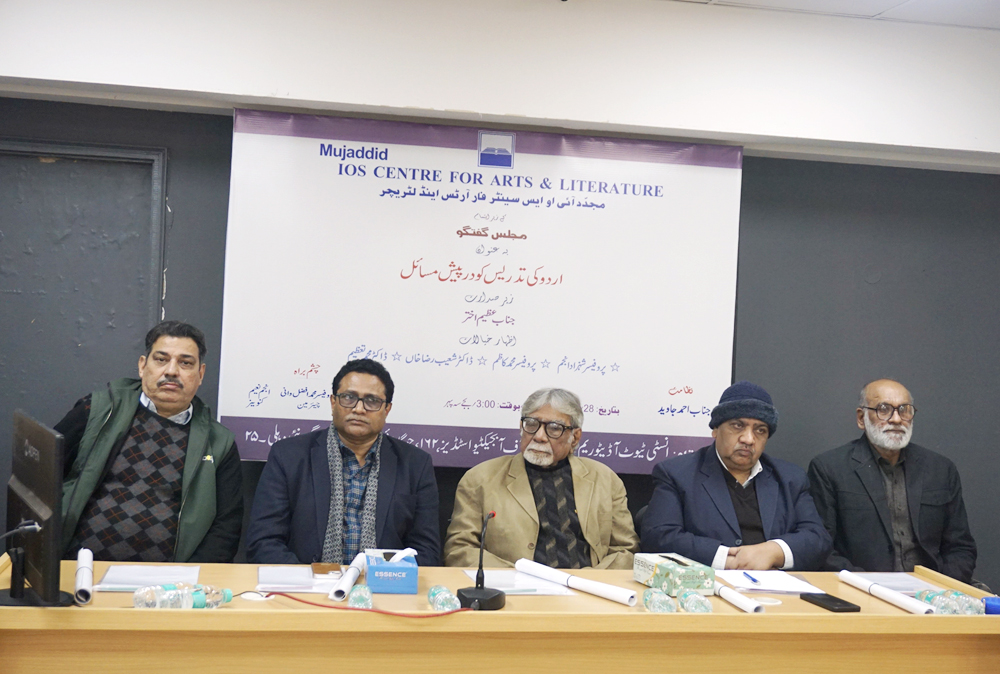
Mujaddid IOS Centre for Arts and Literature organises Discussion on “Issues before the Teaching of Urdu Language”
New Delhi: A discussion on “Issues before the teaching of Urdu Language” was organised by the Mujaddid IOS Centre for Arts and Literature on December 28, 2024 at the auditorium of the Institute of Objective Studies.
The program began with recitation of a Qur’anic verse by Mr. Nasim Ahsan of the Institute.
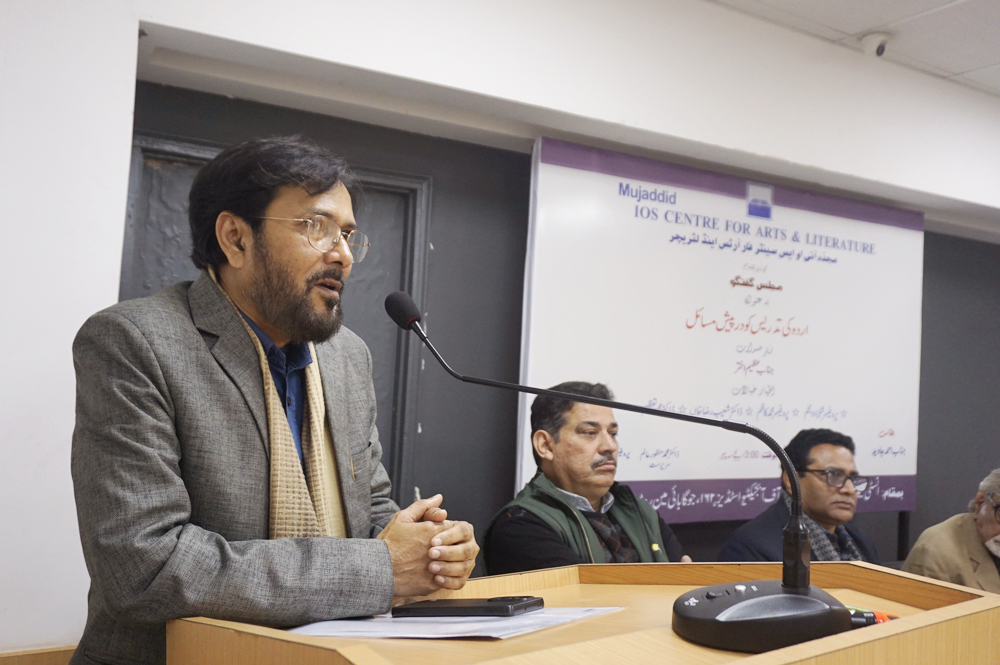
Senior Urdu journalist and writer Mr. Ahmed Javed introduced the topic before the discussion, which was chaired by renowned Urdu writer Mr. Azim Akhtar, got underway. He gave a brief explanation of the causes of the current situation in Urdu language instruction. He claimed that the government's apathy was one of the contributing factors. There were no new hires for the Urdu teaching positions. The situation has gotten so bad that positions for Urdu instructors are being eliminated and vacancies are not being filled. Furthermore, no appropriate plans had been put in place for the training of Urdu teachers. Additionally, he mentioned the parents' lack of enthusiasm in encouraging their children to take Urdu as a subject.
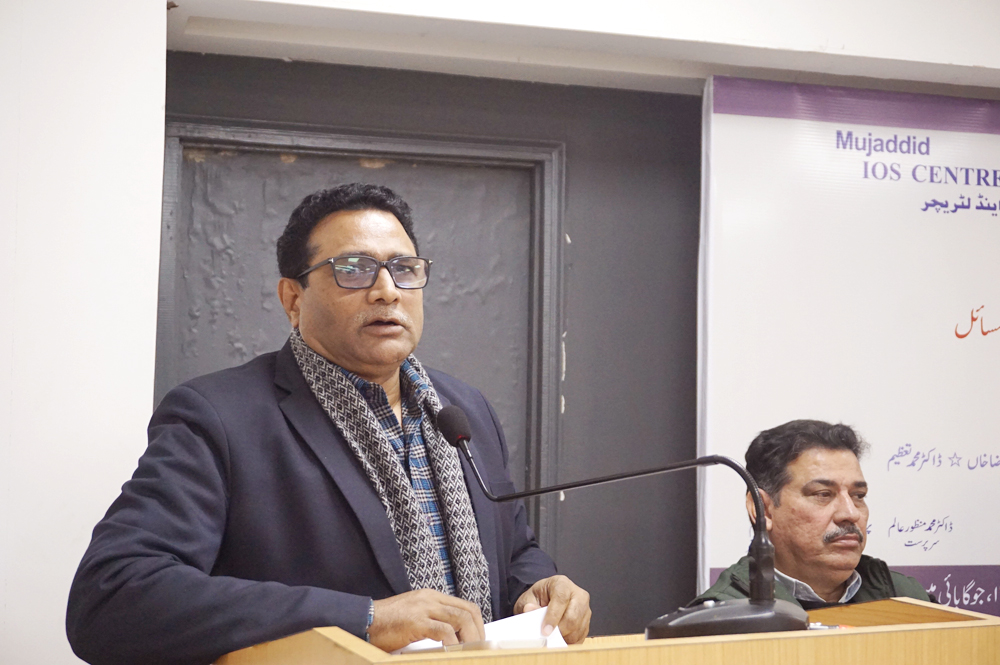
Prof. Mohammad Kazim noted that Urdu, owing to its sweetness and simplicity, has demonstrated its significance globally and managed to survive even in challenging conditions. Addressing the challenges in teaching the language, he expressed concern over the declining interest among Muslims, calling it a serious issue. He emphasized the need for proper training programs for Urdu teachers and the integration of modern technology in Urdu education. He cautioned against despair, describing it as a destructive force that drains one’s energy. While acknowledging the existing challenges, he stressed the importance of persistent efforts rather than inaction. Additionally, he raised concerns about the lack of seriousness in curriculum development and questioned the direction and implementation of the new education policy.
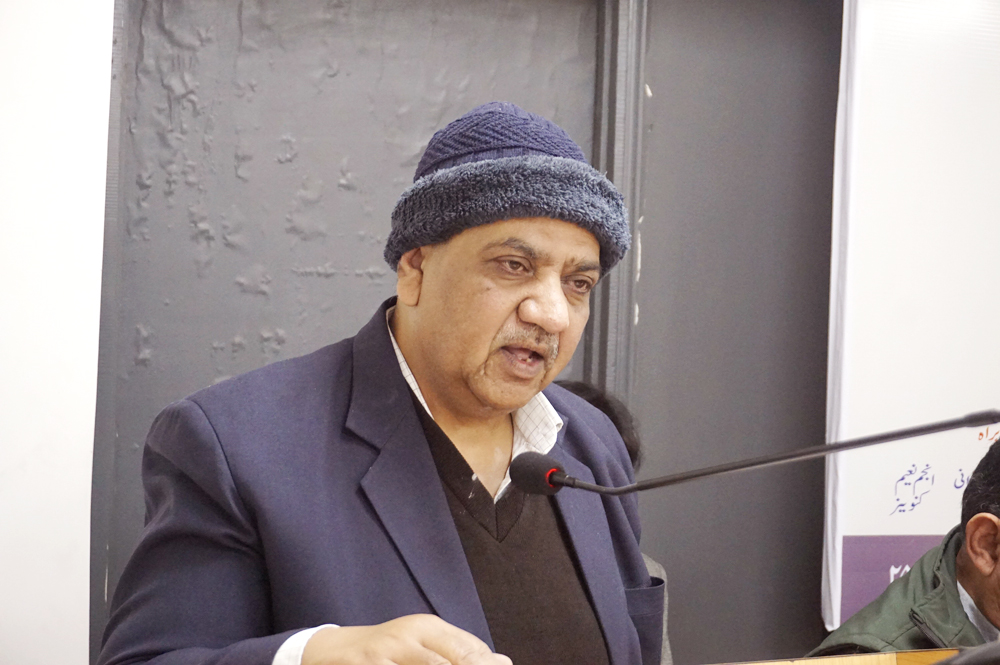
Prof. Shahzad Anjum emphasized that the issue was extensive, spanning across primary, secondary, and university education. He noted that challenges existed at every level and needed to be tackled with a practical approach. Meanwhile, Prof. (Ms.) Haseena Hashia, Vice-Chairperson of the IOS, highlighted the gradual decline of Urdu’s vibrancy. She underscored the importance of updating the Urdu dictionary and creating alternative words. Additionally, she advocated for a structured system to publish supplementary books that could enhance Urdu textbooks.
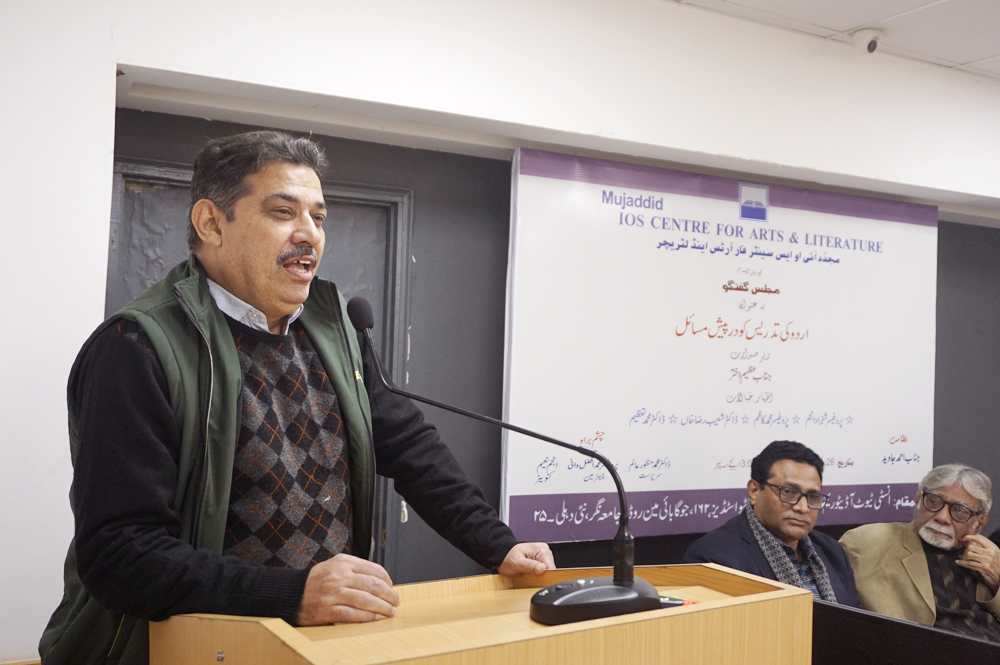
Dr. Shuaib Raza Khan stated that all student textbooks were now available in Urdu, with both NCERT and NIOS having developed high-quality Urdu textbooks. He noted that NIOS had even taken an additional step by introducing a law syllabus for senior secondary students. However, he pointed out that the main issue was the extremely low number of students choosing the subject.
All the speakers at the discussion shared their insights on the challenges of teaching Urdu based on their experiences. They thoroughly examined the existing shortcomings and weaknesses in the education system. To address these issues, they stressed the importance of encouraging the Muslim community to speak Urdu at home. Additionally, they emphasized that Urdu should not only be used for conversation but also for writing signboards in shops, homes, and business transactions. They further suggested promoting the habit of reading Urdu newspapers to strengthen the language's presence.

Earlier, Mr. Anjum Naim, the convenor of the Mujaddid IOS Centre for Arts and Literature, welcomed the guests and provided an overview of the Centre's activities. He mentioned that the Centre actively organizes discussions, seminars, and talks on various issues related to arts and literature, with a special focus on Urdu. He also assured that such events would continue to be held regularly.

Presiding over the discussion, Mr. Azim Akhtar acknowledged the significant progress made by the IOS under the leadership of Dr. Mohammad Manzoor Alam. Speaking on the condition of Urdu, he remarked that the language suffered due to official neglect and the community’s indifference. He pointed out that many Muslim families did not encourage their children to take Urdu as a subject at the secondary level, and the lack of interest in speaking Urdu at home further contributed to its decline. Additionally, he noted that the circulation of Urdu newspapers was not growing because readership was decreasing. He stressed the importance of revitalizing the language by encouraging people to read newspapers, magazines, and books in Urdu.
The program was attended by several distinguished guests, including Mr. Mansoor Ahmad, Mr. Kalam Arshad, Mr. Firoz Hashmi, Mr. Abdul Mannan, Mr. Siraj Makki, Mr. Suhail Anjum, Mr. Safi Akhtar, Dr. Ishrat Zahir, Dr. Naushad Alam, along with numerous Urdu teachers and students.
At the end, Mr. Anjum Naim expressed his gratitude to all attendees by proposing a vote of thanks.
Go Back